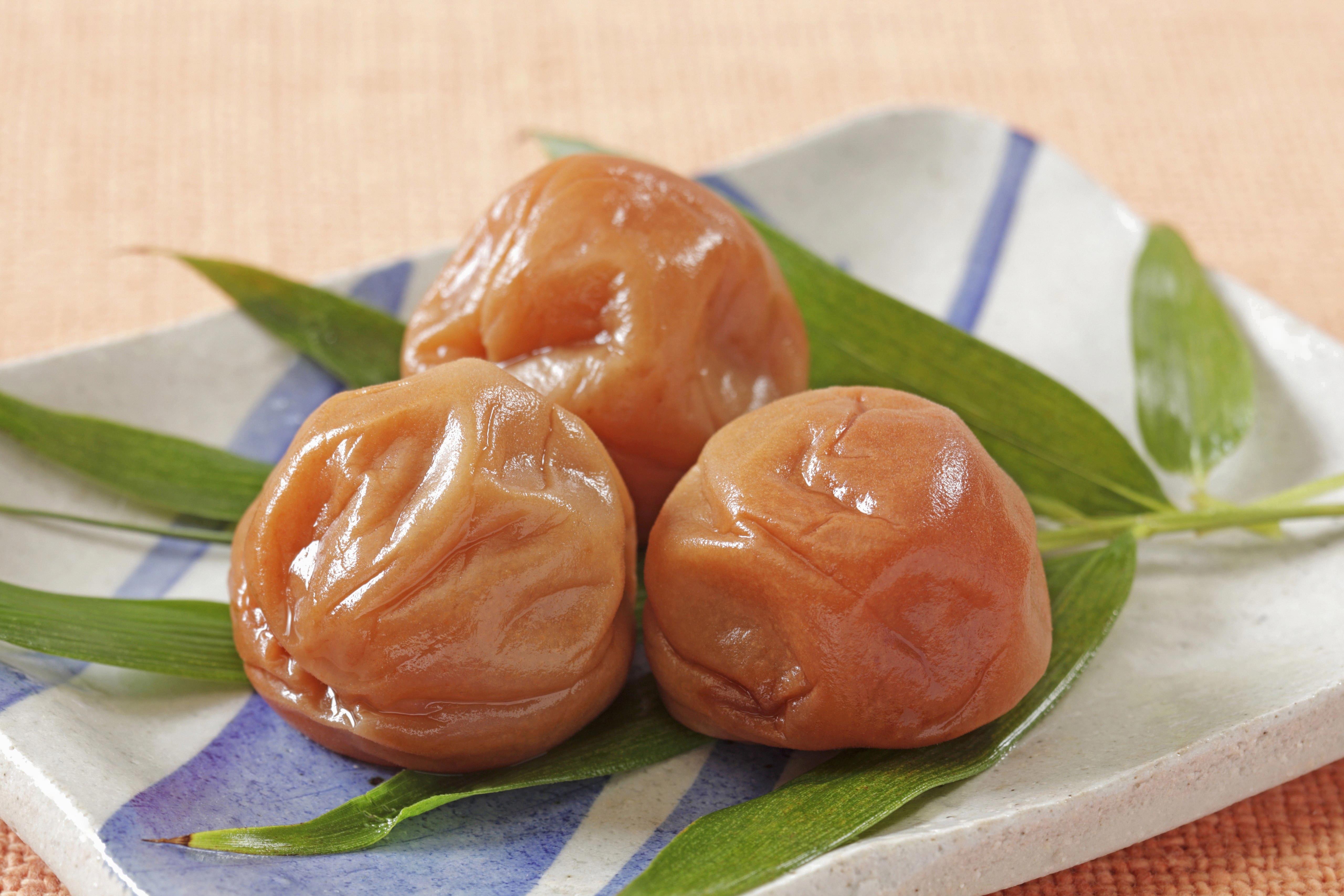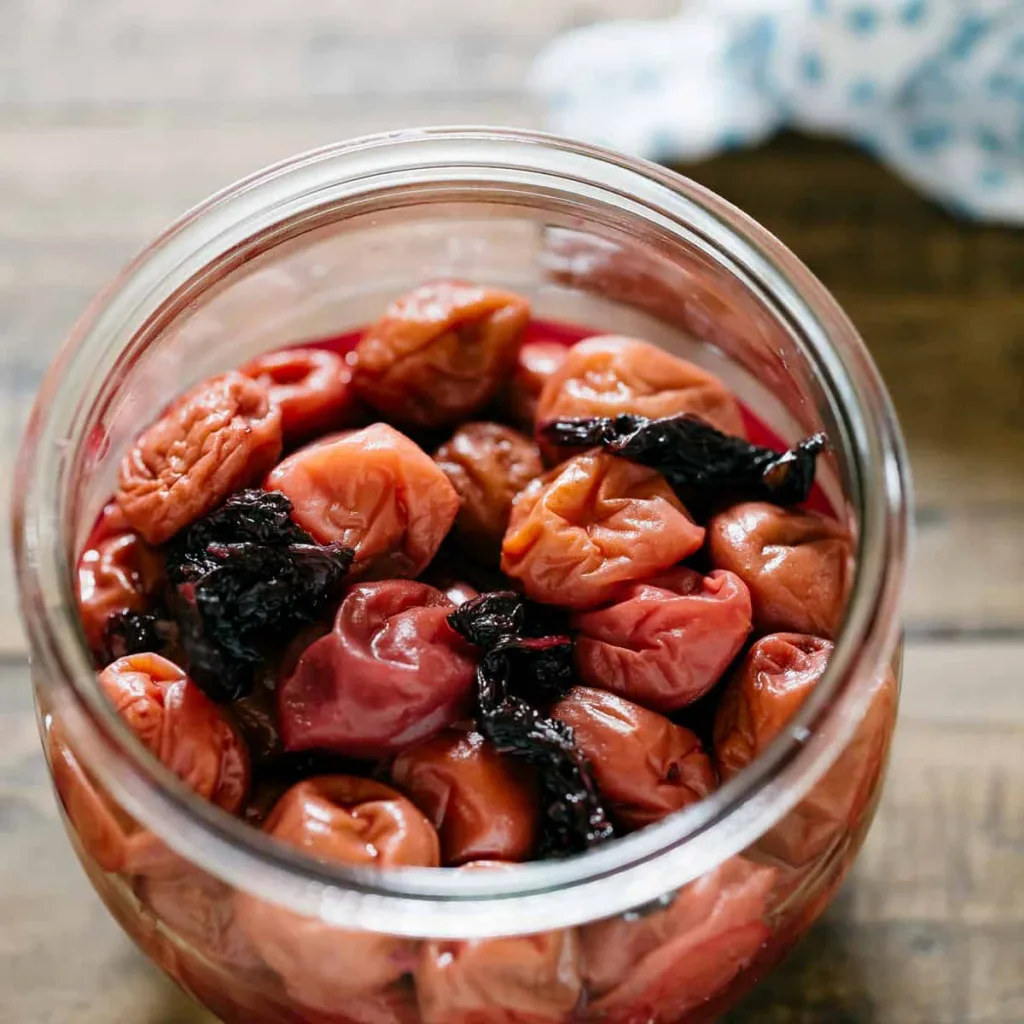Pickled plums, also known as umeboshi, are a popular Japanese delicacy that has been enjoyed for centuries. These small, tangy plums are pickled in a mixture of salt, vinegar, and other seasonings, giving them a unique, salty-sour flavor that is both refreshing and satisfying.
One of the most appealing aspects of pickled plums is their long shelf life. Because they are so heavily salted, pickled plums can last for months or even years without spoiling. This makes them a popular choice for backpackers, hikers, and other outdoor enthusiasts who need long-lasting, shelf-stable snacks.
If you purchase pickled plums from a store, they may come packaged in a jar or other container. Once you open the container, it is important to keep the plums tightly sealed to prevent moisture from getting in. You can store them at room temperature, but they will last longer if you keep them in the fridge.
The exact length of time that pickled plums will last depends on the specific type of umeboshi and how it is stored. In general, though, most pickled plums will last for at least several months, and some can last for up to a year or more. It is always a good idea to check the expiration date on the package, if there is one, and to use your own judgment when determining wheher the plums are still good to eat.
If you make your own pickled plums at home, you can control the ingredients and ensure that they are as fresh as possible. Homemade pickled plums can be stored in a sealed container in the fridge for several months, or even longer if you vacuum-seal them or use other preservation methods.
Pickled plums are a delicious and versatile snack that can last for months or even years if stored properly. Whether you purchase them from a store or make them at home, they are a great way to add a burst of flavor to your meals and snacks. So go ahead and give them a try – you won’t be disappointed!
Do Pickled Plums Have an Expiration Date?
Pickled plums, also known as umeboshi, are a Japanese delicacy made from salted and pickled ume fruits. The good news is that pickled plums do not expire, even if they are not refrigerated and kept at room temperature. This is becaue their high salt content, which is usually over 18%, prevents bacteria and mold growth that can cause spoilage.
However, it’s important to note that the umeboshi sold at supermarkets and convenience stores may contain seasonings and preservatives, such as honey, which can affect their shelf life. Depending on the variety, these pickled plums may only have a salt content of 5-10%, which may not be enough to prevent spoilage over time.
To ensure the longevity of your pickled plums, it’s recommended to store them in a cool, dry place away from direct sunlight. In addition, it’s best to consume them within a reasonable time frame to ensure their freshness and quality.
Pickled plums or umeboshi do not expire due to their high salt content, but the addition of seasonings and preservatives may affect their shelf life. It’s important to store them properly and consume them within a reasonable time frame to ensure their freshness and quality.

Source: finedininglovers.com
Storing Umeboshi Plums in the Refrigerator
Umeboshi plums are a popular Japanese delicacy that is enjoyed for their tangy and salty flavor. These plums are often consumed as a condiment or snack, and they can also be used to add flavor to various dishes. If you have purchased umeboshi plums and are wondering how long they can last in the fridge, we have got you covered.
Umeboshi plums can last for a considerable amount of time if stored properly in the fridge. Once you have unpacked the plums, it is recommended to keep them in the original container or transfer them to another sealed container. This will help to maintain their freshness and prevent them from drying out.
When storing umeboshi plums in the fridge, it is essential to keep them away from moisture and light. Moisture can cause the plums to spoil quickly, wile exposure to light can cause them to lose their vibrant color and flavor. Therefore, storing umeboshi plums in a dark and dry place in the fridge is crucial.
In general, umeboshi plums can last for 3 to 6 months in the fridge if stored correctly. However, it is recommended to check the plums periodically for any signs of spoilage, such as mold or discoloration. If you notice any signs of spoilage, it is best to discard the plums to avoid any potential health risks.
To summarize, if you want your umeboshi plums to last longer, store them in a sealed container in a dark and dry place in the fridge. This will help to maintain their freshness and prevent them from spoiling quickly. With proper storage, umeboshi plums can last for 3 to 6 months in the fridge.
Do Umeboshi Plums Require Refrigeration?
Umeboshi plums are a traditional Japanese food that has become increasingly popular around the world due to their unique flavor and potential health benefits. One question that often coes up is whether or not these plums need to be refrigerated.
The short answer is no, umeboshi plums do not need to be refrigerated. This is because they are thoroughly pickled in salt and often other ingredients such as shiso leaves or red perilla. The pickling process not only gives these plums their distinctive sour, salty taste, but it also preserves them for long periods of time without the need for refrigeration.
That being said, it is important to protect the plums from drying out once they have been opened. This can be done by storing them in an airtight container or wrapping them tightly in plastic wrap. If the plums do become dry, they can be rehydrated by soaking them in water or even sake for a short period of time before eating.
It is worth noting that while umeboshi plums do not need to be refrigerated, they may benefit from being stored in a cool, dark place. This can help to maintain their quality and prevent them from becoming too soft or mushy.
Umeboshi plums are a versatile and delicious food that can be enjoyed in a variety of ways. Whether eaten on their own as a snack or used as a flavoring in various dishes, they do not need to be refrigerated but should be protected from drying out once opened.
Refrigerating Pickled Plums
If you want to preserve the pickled plums for an extended period, it is essential to refrigerate them. The process of pickling involves preserving fruits or vegetables in a solution of vinegar, salt, and sugar, which reduces spoilage and extends the shelf life of the food. However, pickled plums can still go bad if left at room temperature for an extended period.
To refrigerate pickled plums, first, let them cool to room temperature. Once cooled, transfer the pickled plums and the liquid into an airtight container. It is essential to ensure that the container is clean and sterile before use. Cover the container and place it in the refrigerator.
It is recommended to chill the pickled plums uncovered for at least two hours before serving. This allos the flavors to meld and intensify. Once chilled, cover the container and store it in the refrigerator for up to two weeks. It is crucial to note that the longer the pickled plums sit in the refrigerator, the softer they become.
To summarize, refrigerating pickled plums is necessary to preserve them for an extended period. Chill the plums uncovered for two hours before covering and storing them in an airtight container in the refrigerator for up to two weeks.

Conclusion
Pickled plums, also known as umeboshi, are a popular and traditional Japanese food that has been enjoyed for centuries. With its unique salty and sour taste, it is a versatile ingredient that can be used in vaious dishes such as rice balls, salads, and even drinks.
It is important to note that not all pickled plums are created equal. Some store-bought varieties may contain additives and preservatives, while homemade versions offer a more natural and authentic taste.
Regardless of the type you choose, it is recommended to store pickled plums in a sealed container in the refrigerator to maintain its quality and prevent drying out.
Pickled plums are a delicious and healthy addition to any diet. Its high salt content may not be suitable for everyone, but for those who can enjoy it in moderation, it is a unique and flavorful food that is definitely worth trying.
